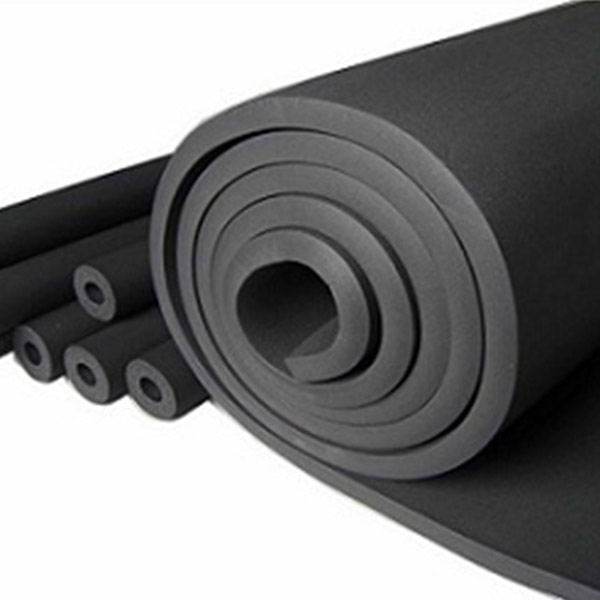
SBR Rubber Sheet


SBR Rubber Sheet KXT B400SBR
SBR (Styrene Butadiene Rubber) is known for its exceptional resistance to abrasion and its extraordinary tensile strength that makes it very long lasting. This polymer is better than natural rubber when it comes to ageing and temperature resistance. SBR also has excellent mechanical properties and is often used for coating rubber sheets
Besides the good insulation and shock absorption qualities they provide, SBR sheets can also resist inorganic chemical products, tearing and the ozone. These sheets are ideal for automotive and construction industries
SBR Rubber can be compounded to provide very fine abrasion, wear, and tensile qualities. SBR can be readily substituted for natural rubber in many applications with significant cost savings. Resilience is about the same as natural rubber
Advantages
• More resistant to ageing and temperature than Natural Rubber
• Good resistance to abrasion, wear, and tensile strength
• Good resistance to many inorganic chemical products
• Excellent mechanical properties, low compression set
• High resilience like as natural rubber
• Limited resistance to mineral oils
• Cost saving than natural rubber
• Excel in cold & heat resistance
• Durable and long time usage
Application
• Mining industry, industrial enviroments where is high abrasion
• Automotive and construction industries
• Gasket material for hot or cold water
• Aggregate processing industries
• Skirting grades and scrapers
• Cut for sealing strips
• General packing
• Tile industries
• Buffer., etc
SBR rubber Properties
|
Item |
SBR |
Test Method |
|
Color |
black/red |
|
|
Specific gravity |
1.3-1.6g/cm3 |
ASTM D297 |
|
Hardness |
40-80 Shore A |
ASTM D2240 |
|
Tensile strength |
3 MPa (min) |
ASTM D412 |
|
Elongation at break |
350% (min) |
ASTM D412 |
|
Width |
1m, 1.2m or 1.5m |
|
|
Tear strength |
15 N/mm |
ASTM D 624 |
|
Low temperature resistance |
-30°C |
ASTM D1329 |
|
Temperature range |
-30°C to +80°C |
ASTM D2000 |
Kinds of Rubber Properties
|
Common name |
Neoprene |
EPDM |
Nitrile |
Silicone |
Viton |
Kalrez |
|
Chemical Compatibility |
||||||
| Lubricating and Fuel Oils |
|
X |
|
X |
|
|
| Hydraulic Oils |
|
X |
|
|
|
|
| Fireproof Hydraulic Fluids |
|
|
|
|
X |
|
| Vegetable Oils, Animal Fats |
|
|
|
|
|
|
| Gasoline (high octane) |
 X X
|
X |
 
|
X |
|

|
| Kerosene |

|
X |

|
X |
|

|
| Aromatic Hydrocarbons | X | X |
 X X
|
X |
|

|
| Aliphatic Hydrocarbons |

|
X |

|
X |
|

|
| Alcohols |

|
|

|
|
|

|
| Ketones |
 X X
|

|
X | X | X |

|
| Halogenated Solvents | X | X | X | X |

|

|
| Water (>80°C) |

|

|

|

|
|

|
| Concentrated Acids | X | X | X | X |
|

|
| Diluted Acids |
|
|
 X X
|
X |
|

|
| Alkalis |
 
|

|
|
|
X |

|
|
Properties |
||||||
| Max. Continuous temp °C | 105 | 130 | 121 | 204 | 250 | 316 |
| Low Temperature °C | –50 | –54 | –25 | –85 to –125 | –8 to -30 | –8 |
| Tensile Strength, MPa | 25 | 17 | 27 | 10 | 20 | 15 |
| Hardness Shore A | 30–95 | 40–90 | 40–95 | 30–90 | 70–90 | 65-95 |
Key:  = Excellent ,
= Excellent ,  = Good,
= Good,  = Fair, X = Not Recomment
= Fair, X = Not Recomment